Sometimes life catches you off guard and you go through things you never thought you would. As I approached the big five O my goal was to be fit, strong and healthy. I worked hard to get stronger and build stamina. I had hopes of being like my seventies something friend who has never had surgery. So far so good, I had never had major surgery until I needed emergency surgery in March. I didn’t know what to expect. So, here are my pre-surgery and recovery tips for optimum results.
The Big Takedown
On August 15th I had my colostomy reversal surgery. The hospital staff called it a “Takedown” which made me feel like I was about to undergo something really big. In reality, a takedown was exactly what I wanted to happen.
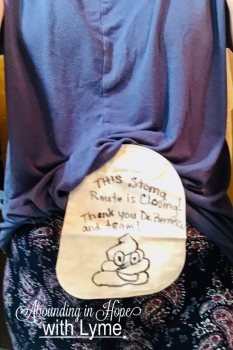
I was ready to be rid of my colostomy once and for all. Even though I only had a colostomy for five months it was five months of learning to adjust. Five months of trying to find the right supplies. Every day was about learning how to do regular activities without a leak. I also had to be very careful about what I ate and drank. It was just a real pain.
Longer Than Expected Surgery
My surgery was a lot longer than expected. My surgeon said the surgery would last an hour but it took five. I had a lot of scar tissue so the only way my surgeon could reconnect me was to remove much more of my colon than anticipated. My surgeon is very skilled and she took the time to do what needed to be done to get me put back together.
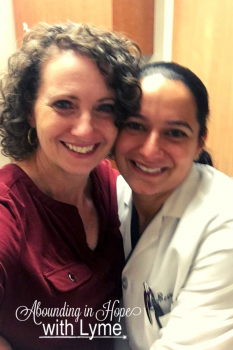
Many people get a temporary ileostomy (where the small bowel is detached and pulled through a small opening in the abdomen). This was a possibility for me as well. Part of me thought I would wake up to this and I remember sliding my hand over my abdomen as soon as I regained consciousness. When I felt a small bandage over my ostomy site and nothing on the right side of my abdomen I dozed back off knowing that everything went well.
Pre-Surgery Tips
The first surgery in March was completely unexpected. I was very sick with a raging infection, a ruptured colon, and a large abscess. It took nine long hours to remove the abscess and all of the infection. Recovery was both emotionally and physically challenging.
After a few months, I finally came to a place where I wasn’t ashamed of having a colostomy. It saved my life. I was able to do almost everything I’ve always done but I also had to give up quite a bit too, like popcorn.
Knowing that I was going to have another surgery made my adjustment easier because I knew this was temporary. I also had time to prepare. I spent months focusing on nutrition, stamina, and regaining strength.
I knew that I needed to have a pre-surgery plan as well as a recovery plan for the best possible outcome.
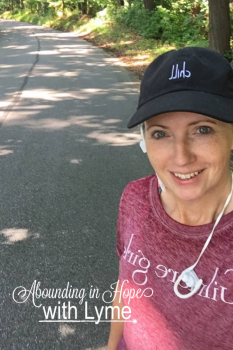 Exercising Post-Op
Exercising Post-Op
As soon as I reached the six-week post-op mark, I began walking. I worked my way up to exercising every day. I woke up early to stretch and then I headed outside for my walk. I was able to increase my distance and speed and was able to walk two miles. By the time I mastered my normal route I decided to walk along a different road which involved a few challenging hills. Just before my surgery, I felt stronger than I had in a long time.
Pre-Surgery Nutrition
Every morning I made my own bulletproof coffee with Kerry Gold butter, Collagen, and a splash of almond milk whirled around in my Vitamix Blender. It tasted like an amazing latte.
After my morning walk, I made what I call my Good Morning Smoothie. Here’s my recipe: 1 cup filtered water, a banana, two scoops of vegan protein powder, one whole apple, one carrot, one celery, half a cup of mixed berries, a handful of spinach, a chunk of ginger, half lemon squeezed and a handful of ice.
Diet and supplements
Right after my initial surgery, I found out that Serrapeptase can minimize scar tissue and so I began taking it every day.
Diet with an ostomy was much different than normal. I found that I didn’t tolerate many of the vegetables that I have always enjoyed. I also had to be very careful not to eat fruit or vegetables with skins or strings. This left me with only a few vegetables that I could eat. I was warned by other ostomates not to eat salads but I did eat them, cautiously at first and then liberally when I realized they weren’t causing any problems.
I increased my protein intake and continued to eat as healthy as I could.
Thoughts & Attitude
It is vitally important to maintain a positive and thankful attitude. Occasionally, fear of the future would grip my heart but I quickly took control of my thoughts and reminded myself that I have a really great surgeon and a really great God.
Healing Rest
As important as exercising was to my pre-surgery preparation, sleep and recovery were also vitally important. I kept a pretty consistent bedtime and took naps when I needed. I also decided that in the evening instead of blogging or scrolling on social media that I would relax, watch a Netflix series or do something that didn’t require much effort.
Pre-Surgery Prep Drink Alternatives
My surgeon gave me a box full of Ensure Immunonutrition to drink for the week before surgery and several Ensure Pre-Surgery drinks to drink the night before and the morning of surgery. After looking over the ingredients I knew
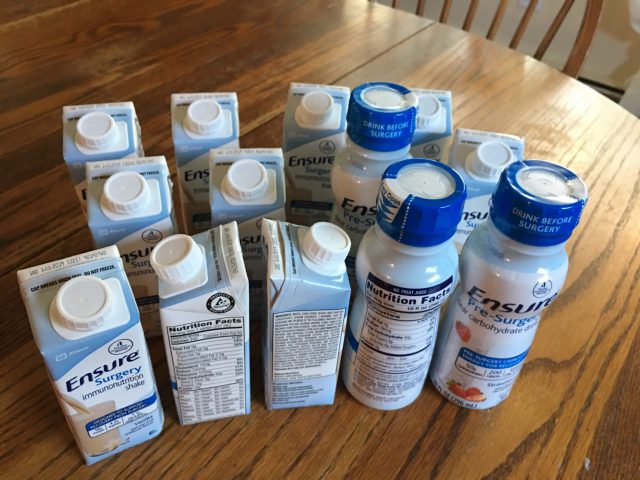
Personal property of AIHWL
these drinks would make me super sick. The first ingredient was corn syrup and they were filled with synthetic vitamins and preservatives. I spoke to my surgeon about my concerns and she explained why she wanted me to drink them but said it was completely up to me. She wasn’t too concerned because she knew that I had a very healthy diet. I read the studies and about the basic premise for why the presurgery drinks are used. I did try to drink one but got incredibly sick so I came up with my own alternative.
My Alternative to Pre-Surgery Nutrition
I continued to drink my smoothie but added in an extra scoop of protein. I included extra lean, healthy protein throughout the day. The Immuno Nutrition had fish in its ingredients so I ate salmon every day. In the evenings I drank a warm cup of coconut/almond milk with a tablespoon of blackstrap molasses. I did not drink anything the night before or the morning of surgery even though I could have had the presurgery drinks.
Homeopathy for Pre and Post Surgery
As I become more comfortable with using homeopathy I looked for information about using it for surgery. I found a pre and post-surgery homeopathy routine. A few days before surgery I began taking Arnica. I called my homeopath and found out that he has a combination remedy for surgery and so I had his office mail me a bottle.
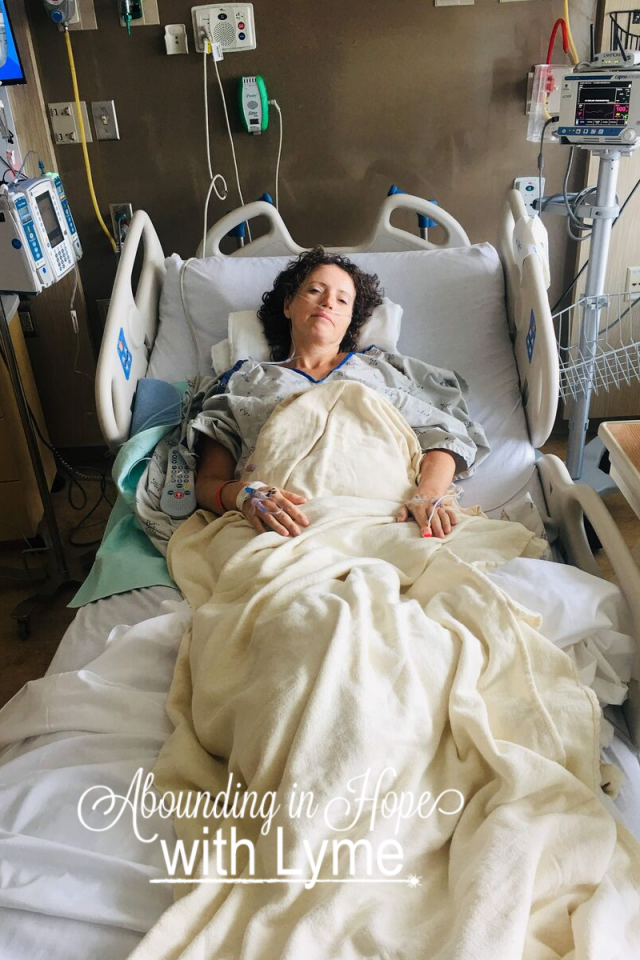 Recovery Tips
Recovery Tips
After surgery, I was given mild narcotics and took them for the next few days. I forgot to bring my homeopathy to the hospital but resumed taking it once I got home and switched to Tylenol for pain. I did so well with my surgery that I was released from the hospital on the second day. The surgeons were quite impressed. It can take some patients a week before their systems wake up and are well enough to go home.
After my first surgery, my friend brought me a bottle of DGL to help with the incredible gas pain that you get from when gas is pumped into the abdomen. That gas caused intense pain from my gut all the way up to my neck and shoulders. This supplement was a huge help after both surgeries.
Post-Surgery Diet
Although the surgeon and the hospital staff told me that I could resume a normal diet I knew better. How could my stomach or colon be ready to take on normal food when I had just undergone major surgery.
Thankfully the young man who served my meals in the hospital chose bland, low fiber, easy to digest foods for me for the first few days. The hospital I stayed in for my reversal had amazing food. I found out they had gotten a new chef. I was very thankful because the hospital I was in for the first surgery had horrible food. Even their pudding was gross and I didn’t know that was a possibility. But I digress.
The Benefits of Bland Food
When I came home, I ate bland, easy to digest food. Scrambled eggs for breakfast. Simple chicken soup for lunch and dinner. Rice and soft chicken with soft-cooked green beans and carrots for dinner. I skipped seasoning other than a bit of Himalayan salt.
The Ostomy Facebook group I was on was proof I was doing something right. Most of the people complained of horrible gut pain after their surgery. They said they had severe cramping for weeks or months after their surgery.
I asked what they were eating and almost all of them went back to eating whatever they wanted. I knew this was the problem because I had eaten a plate of the most amazing spaghetti a friend brought over after my surgery. The sauce was homemade with big chunky tomatoes. I could not resist but quickly learned it wasn’t the best decision. Once I resumed the gentle diet, all the pain and cramping went away.
I drank plenty of water and herbal teas, especially ginger-lemon. Believe it or not, I also did not resume drinking coffee for the first four weeks. Since then I only drink one cup in the morning and that’s my bullet-proof coffee.
Rest and Recovery
Once again, rest is so vitally important. It’s hard to rest when the pain goes away and you start feeling better, at least it is for me. I’ve been taking naps, going to bed early, and I was trying to be careful not to resume my normal schedule until I reach my six-week post-op date. Despite my best intentions, I’m sure I was full-on back into my normal schedule by the third week, other than exercising.
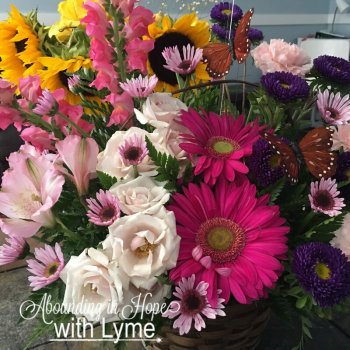
Get Up and Walk
Walking is always allowed even the day of surgery, in fact, it’s encouraged. The nurse comes and insists you get out of bed even when all you want to do is sleep and ignore the world. The interesting thing is that the sooner you get up and walk the sooner your body begins to do all the things it’s supposed to do and the sooner you can go home.
Once you’re home it’s important to keep walking. Even short walks outside are beneficial especially if the weather is nice. Make sure someone goes with you because you’re probably a little wobbly and weak.
Be Compliant
The patient who recovers well is the patient who is compliant. Make sure you understand the post-op directions that you’re given by the hospital. Ask questions if you don’t understand. Don’t hesitate to call your surgeon if you feel that you’re recovery is not going the way it should. If you notice anything unusual or have a fever call right away. For optimum healing results, you must follow your doctor’s orders.
Post-Op Depression
It’s a thing! Post-op depression is real. Anesthesia, medication, and pain can all increase your risk for post-op depression. Give yourself a lot of grace. Be patient. Communicate to your loved ones how you’re feeling and if you need to let your surgeon or doctor know.
I was feeling very depressed after my first surgery but I didn’t experience it all after my second surgery.

Personal property of AIHWL
Resting, eating well, and getting some sunshine will all help. Once you begin to get back to a normal schedule your emotions should begin to balance out. However, if you continue to suffer from depression, tell someone and get help.
Easing Back into Life
Do you realize that when you go through major surgery, it can take your body an entire year to fully recover? Don’t rush back into a busy life. Take the time you need to recover fully and then ease back into your normal routine. Look for ways to reduce stress and maybe think about cutting some things out of your schedule.
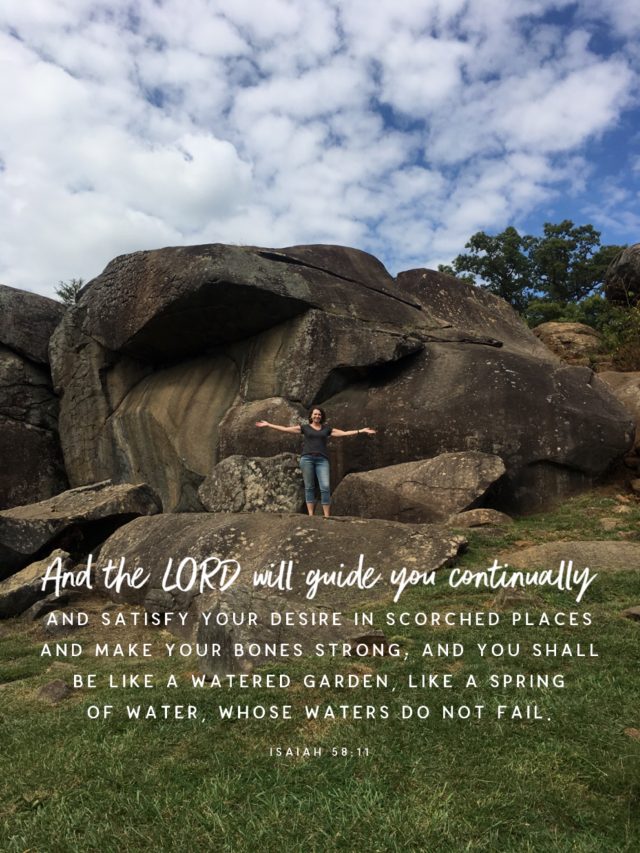
personal property of AIHWL
You can have a very successful outcome when you approach your surgery and recovery with your best health in mind.
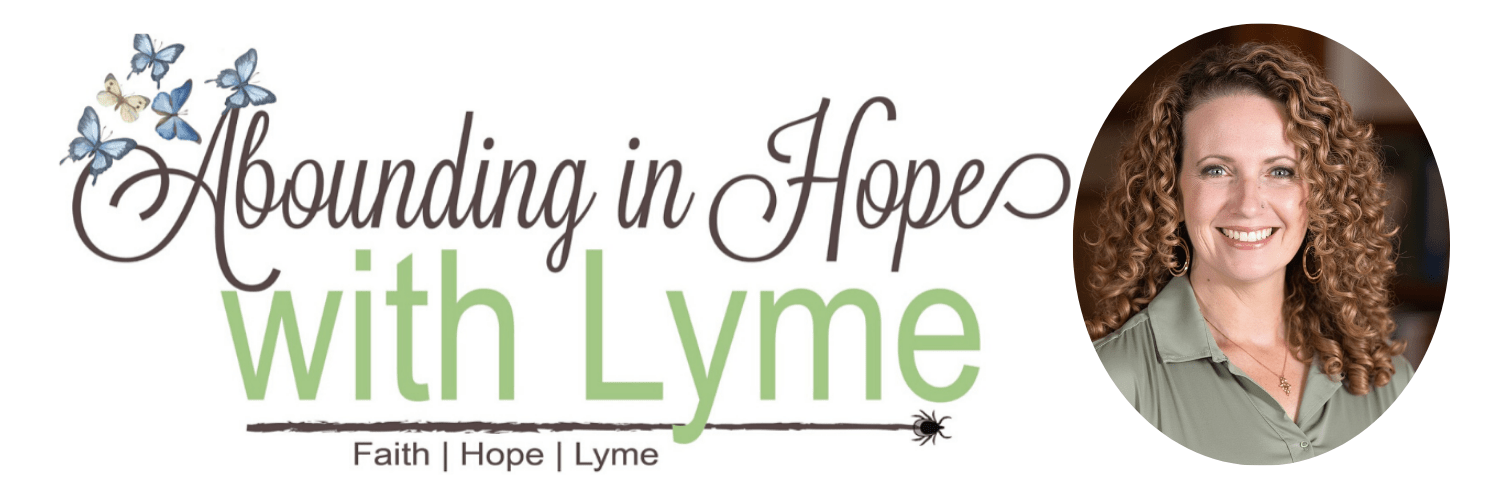


Leave a Reply